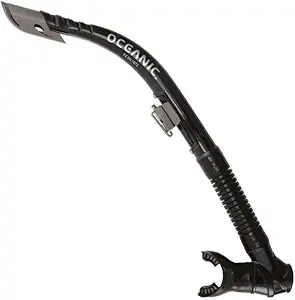Best Options to Keep Your Mobile Phone Connected in Bali: International Roaming, Airalo eSIMs, or a Local SIM?
- Rachel
- Sep 17, 2024
- 4 min read
Updated: Oct 27, 2024

When you’re heading to Bali, staying connected by phone is essential for everything from navigation to keeping in touch with family back home. But with so many options for mobile service, it can be tricky to know what will work best for your trip. In this post, we’ll compare three popular options: international roaming (using Telstra, Optus, and Boost Mobile as examples), using an Airalo eSIM, and buying a
local SIM card on arrival in Bali.
1. International Roaming: Telstra, Optus, and Boost Mobile

If you’re using an Australian carrier, you might be tempted by the convenience of international roaming. While it’s easy to activate, roaming can be costly compared to other options. Let’s compare what Telstra, Optus, and Boost Mobile offer for Bali.
Telstra offers a Day Pass for international roaming in many countries, including Indonesia.
Price: $10 per day.
Inclusions: Unlimited standard national and international calls and texts, plus 2GB of data per day (excess data $10/2GB with 31day expiry)
Pros:
Easy to use without switching SIM cards.
Keep your current number for calls and texts.
Cons:
Expensive for longer stays (e.g., $70 for a week).
Only 2GB of data per day, which might not be enough if you use data heavily.
Optus offers a Travel Pass with competitive rates for Bali.
Price: $5 per day.
Inclusions: Unlimited calls and texts, plus 5GB of data per day.
Pros:
More affordable than Telstra.
More data per day (5GB) for a lower cost.
Cons:
Like Telstra, costs rise for longer trips, and you might forget to turn off roaming after your trip.
Boost Mobile, which uses Telstra’s network, is a great prepaid alternative to the major carriers. They offer a small, medium or large roaming pack.
Price:
Small pack $20
Medium pack $30
Large pack $40
Inclusions:
Small - 1GB of data, 15 minutes of calls and 15 texts, 3 days expiry
Medium - 3GB of data, 30 minutes of calls and 30 texts, 7 days expiry
Large - 5GB of data, 60 minutes of calls and 60 texts, 14 days expiry
Pros:
A good value for light data users on shorter trips.
Cheaper upfront cost than Telstra and Optus if you’re not using a lot of data.
Cons:
Only 5GB of data for 14 days; not ideal for heavy data usage.
Limited call and text inclusions compared to Telstra and Optus.
2. Airalo eSIM: Affordable and Easy to Use Mobile Data

For budget-conscious travelers, Airalo’s eSIM is a great alternative. You can buy it online and activate it before or during your trip without removing your regular SIM card.
Airalo Indonesia eSIM Plans:
1GB for 7 days: $8.50 AUD
3GB for 30 days: $17.00 AUD
5GB for 30 days: $25.50 AUD
10GB for 30 days: $38.00 AUD
Pros:
Affordable: A fraction of the cost of roaming with Telstra, Optus, or Boost.
Instant activation: No need to wait until you land to get connected.
No SIM card swap: Keep your home SIM in your phone while using Airalo for data.
Cons:
Data-only: You’ll need to rely on apps like WhatsApp, Messenger or Skype for calls and texts.
Compatibility: Not all phones are eSIM compatible, so check before purchasing.
3. Buying a Local SIM Card for Your Mobile Phone in Bali

For those planning a longer stay or needing more data, buying a local SIM card in Bali is the most cost-effective option. You can pick one up at the airport or from local shops once you arrive.
Price and Inclusions:
Price: Local SIM cards cost around IDR 100,000–200,000 (~$10-$20 AUD).
Inclusions: Expect plans with 10GB to 30GB of data, valid for 30 days. Many also include free local calls and texts.
For example:
Telkomsel’s Tourist Prepaid Plan: IDR 150,000 (~$15 AUD) for 25GB of data, 25 local SMS, and 25 minutes of local calls, valid for 30 days.
XL Axiata: Similar pricing with plans ranging from 10GB to 30GB of data.
Pros:
Best value: For longer trips or heavy data use, local SIM cards provide the most data for the lowest cost.
Full-service SIM: Can include data, calls, and texts.
Widespread availability: You can easily buy a SIM at the airport or a convenience store in Bali, or there are even sellers who will come to you and set it up in your hotel room or villa.
Cons:
Inconvenience: You’ll need to swap out your home SIM card and may lose access to your regular phone number.
Registration: Some local SIMs require passport registration, which can add a small hassle when purchasing.
Which Option is Best for You?
Short Trips (up to 7 days): If you’re staying for just a few days, Optus offers a great deal with its $5/day Travel Pass and 5GB of data per day. Boost Mobile is also an affordable option if you’re a light data user.
Moderate to Longer Trips (7-30 days): For a week or more, Airalo’s eSIM is a much more cost-effective solution. With flexible plans starting from $8.50 AUD, you can easily choose the right amount of data without breaking the bank.
Extended Stays (over 30 days): If you’re planning to stay in Bali for a month or more, a local SIM card is your best option. With data plans ranging from 10GB to 30GB for as little as $10 AUD, it’s the cheapest way to stay connected.
Each option has its strengths, so think about how long you’ll be in Bali and what your data needs are. For most travelers, Airalo’s eSIM strikes the right balance between cost and convenience, but if you’re staying longer or need more flexibility, it may be worth grabbing a local SIM card on arrival.
Safe travels, and happy exploring!
%20(1).png)



















Коментари